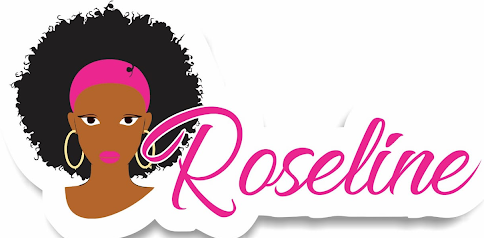For centuries, people have always seen science as too complicated and too logical for the female brain but women like Marie Curie the French-Polish physicist who won a Nobel Prize in Physics and Chemistry for her pioneering research in radioactivity and mathematician Ada Lovelace, who saw the potential in Charles Babbage’s analytical engine, wrote and developed software for it and became one of the first computer programmers have long since challenged and squashed these stereotypes. Today, although people still ask these questions and think of STEM as a male playing field, a good number of women have taken their place and begun making their mark there. One of such remarkable women is Chidera Nwoke, a software engineer. In this interview with her, we would be understanding her journey. What it has been like for her as a woman in STEM, what inspired her to go into STEM and how she has been able to cope with any challenges she has been faced with as a woman who has ventured into STEM – a male-dominated field of industry.
1. Can we meet you?
My name is Chidera Nwoke, and I’m a software engineer.
2. What was your university education like?
I had my undergraduate studies at the University of Ibadan where I studied Computer Science. Originally, my intention was to study Chemical engineering or Architecture but my mom casually said I should opt for computer science “Since companies are using computers”. Speaking for myself, I enjoyed about 90% transparency in my department. Basically, our scores were merited. There was no sorting or abuse of any form. I only wished the lectures were more pragmatic and used real-life problems in their lecture approach.
3. How has the journey in a STEM Career been like?
It has not been all rosy. There were times when I was frustrated to the point where I almost gave up. I believe there’s no favoritism in tech, at least with the people I have worked with. If you’re fighting for the same salary that males in tech receive, then you should be ready to make the same sacrifice that they do. I’ve lost count of the number of times I had to stay over at work because of a deployment. However, what makes my career interesting is the fact that I’m a part of something that works. It is a constantly evolving career, where you must be willing to unlearn and relearn every day.
4. Do you have any regrets
My only regret is the lack of exposure to tech at a much younger age.
5. Many people think STEM courses are a no-go area for girls, what do you have to say about this?
I’ve always seen myself as a “person” in tech, not a woman in tech. Being in a career populated by males is enough determination to do better, and that is why women in STEM fields often outshine their male counterparts. When you start seeing yourself as a “Person in tech”, it takes away all the barriers, it births boldness in you and an attitude to always do better.
6. What has helped you to attain success in this field?
When the chips are down, I don’t look back and blame it on being a woman. I don’t sit there looking for pity nor do I seek favoritism. I have always had one thing on my mind, to be better than I was the previous year. I am in constant competition with myself and that’s what keeps me going. I’m a very inquisitive person, I always ask intelligent questions from my seniors and juniors at work. I learn from those who have gone ahead from me, I invest heavily in myself via online courses, books, meetups and collaboration with people.
7. What are some of the challenges you have encountered in this chosen path? How did you approach them?
One notable challenge I encountered was having to complete a Client’s project in a week. I was just an associate software developer, my skills were still in its early stages and I had no idea how to go about it. I believe that if you’re clear about what the challenge is, what is required of you, and a plan with notable milestones to achieve the goal, every challenge can be overcome. I followed the rule above, I did my research, selected my algorithms, drew my workflows, and made sure I had a testable module by the end of each day. By the final day, the deadline was met and the project delivered.
8. What one thing did you wish you could have done differently?
If I would go back to do something differently, it would be to find a balance between classwork and real skill development outside the classroom. It’s good to get good graded. However, matching your grades with practical skills for the real world is better. It puts you ahead and sets you up for faster growth in your chosen career.
9. What advice would you give your younger self?
Let your curiosity run wild, let your dreams be bigger than what people perceive as normal. Contribute positively to community development.
10. How can you encourage young girls to study STEM courses?
If you have a passion for STEM, the only encouragement I can give you is to go for it. Be determined and learn to motivate yourself. Also, find people with like minds whose conversations build you up rather than tear you down. We all have brains, irrespective of your gender, so use yours. Keep Learning, keep researching and don’t limit yourself.
11. What do you think are the roles of parents and science teachers in encouraging girls in STEM?
Parents should always engage in intellectual discussions with their kids. They shouldn’t just impose careers on their kids just cause they failed at theirs or for the sake of societal accolades. Parents should ask the right questions, find out what their kids would love to do and give them their full support. Teachers have their own parts to play as well. Encourage females in STEM to be bold and take part or lead project teams in the classroom and in the community.
I am sure you must have been inspired by this interview. There are a few points she made that I would love to emphasize. The best way to do what you are passionate about is to go for it. Start early so that you don’t have regrets later in life. But if you haven’t already started and you still want to venture into it, go for it. As you explore the world of STEM, always see yourself as a person in STEM not just as a woman in STEM. This way, you don’t accept the limitations or the stereotypes that people have placed on your gender. Then, most importantly motivate yourself and find people of like mind to have stimulating discussions with. Keep learning and keep pushing yourself beyond the stereotypes and watch yourself achieve great things!


